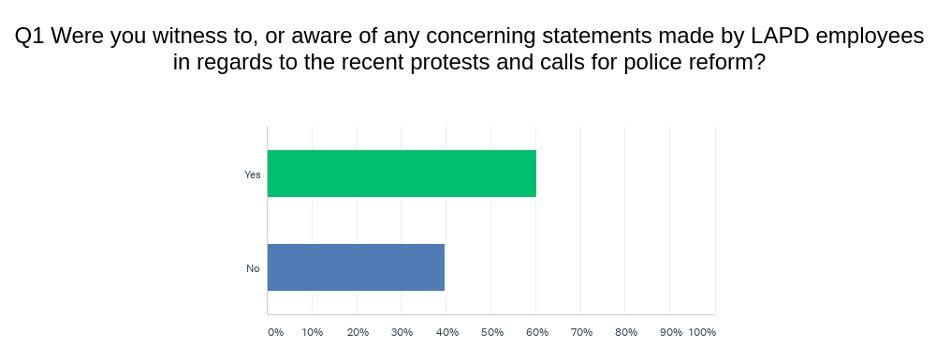Commander Anne Clark runs LAPD’s Detective Services Group, which makes her second in command of the Detective Bureau, reporting directly to Deputy Chief Kris Pitcher. But it’s not a happy workplace, apparently. According to an anonymous email sent on August 6. 2020 to Los Angeles Police Commissioner Shane Murphy Goldsmith by someone using the pseudonym David Well, Internal Affairs Group was at that time conducting a “workplace audit”, apparently LAPD-speak for IAG investigations that lack “CF numbers”, whatever those might be.
Despite the pseudonym, though, I’d bet good money the anonymous complainant is a woman. The accusations against Clarke are not only completely plausible, they have to do with the kind of pro-male sexism that certain women in certain powerful positions can display. They’re not really the kind of problems that men tend to notice in this amount of detail. E.g.
“Anne Clark dislikes other female command staff within Detective Bureau, which appears to be based on their gender. She is very cordial to and supportive of the male Captains but rude, obnoxious, disrespectful and downright mean to the female Captains.
It’s hard for me to imagine a male LAPD officer noticing this kind of behavior and at the same time thinking it’s worth complaining about.1 There are plenty of other examples like this. In fact all of the specific examples have to do with Clark’s mistreatment of high-ranking women, which suggests that the complainant is also a high-ranking woman. The email also faults Clark’s superior officer, Kris Pitcher:
Deputy Chief Kris Pitcher is complicit in that he listens to how she speaks to others during Compstat inspections or other venues, yet does nothing to stop her unprofessional demeanor, most likely because he has been promised the next Assistant Chief position and does not want to jeopardize his appointment by being blamed by Clark for taking action against a female employee.
Michel Moore received Well’s email, which is transcribed in its lurid entirety below, and had his command staff initiate a personnel complaint against Clark. He also asked for a briefing on the Workplace Audit Well refers to. But I have no idea what happened after that, at least not yet I don’t!
Continue reading An Anonymous Complaint Against LAPD Commander Anne Clark Of The Detective Services Group Details Her Sexist Misrule — Reveals The Existence Of A Secret Internal Affairs Audit Of The Detective Bureau — Accuses Clark Of Hating Women Command Staff — Humiliating Them In Public — Accuses Deputy Chief Kris Pitcher Of Enabling Clark’s Bad Behavior For His Own Selfish Purposes — And Of Conspiring With Clark To Criminally Misuse Federal Funds — And Michel Moore Opened Up A Personnel Complaint Against Clark On The Basis Of This Anonymous Email — Did I Mention There Is A Complete Copy Of It Right Here For You?!

